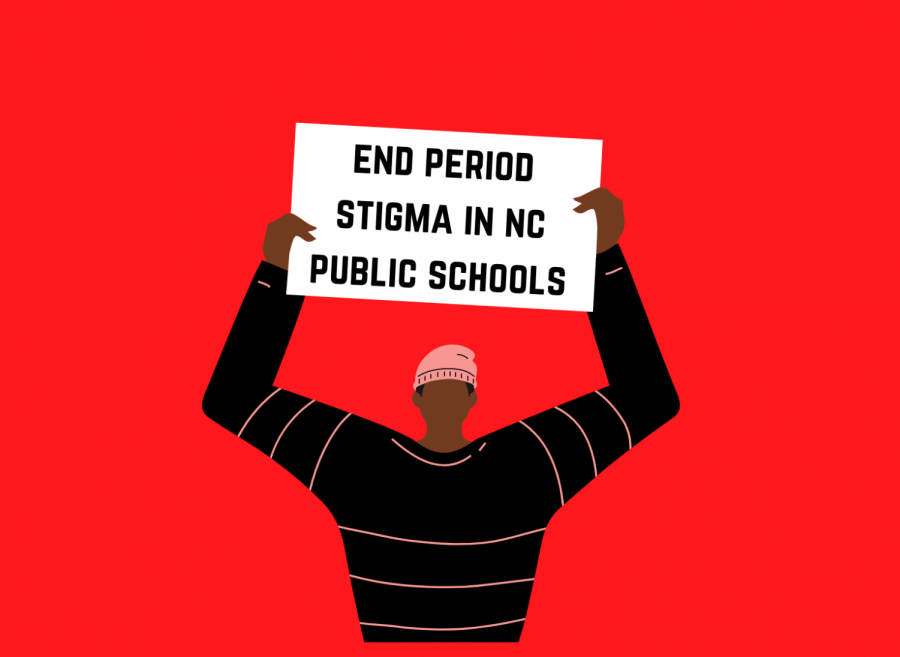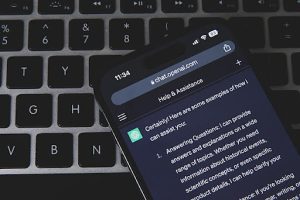End Period Stigma in NC Public Schools
Sign and share the petition to help end period stigma in NC public schools.
February 3, 2021
Menstruation is a heavily stigmatized topic for those who have and do not have periods alike which can be found in euphemisms for the word period, “period shaming“, and general embarrassment around the subject. Although this shows itself as a widespread problem, with worse cases revealing themselves in countries like India, Kenya, South Africa, and Nepal, the taboo of menstruation and its damage on the health of menstruators can be found within our own school and state lines.
I myself am a student in the North Carolina Public School system, and have received education about health through the curriculum and standards the North Carolina Department of Public Instruction (NCDPI) has created. I have also been ashamed of my own body through the taboo around menstruation that the curriculum and environment the North Carolina Public School system has created.
My peers and I have failed to receive basic education on menstrual hygiene, which put us at a greater risk of menstrual disorders and syndromes. We have failed to be provided with essential items in school like periods and pads. We have been forced to face ignorance along with a lack of empathy from non-menstruators.
It is unacceptable to sacrifice the health and wellbeing of students in exchange for the comfort of the patriarchy. Here is what needs to change:
1) Ban Gender-Segregated Learning
Many elementary health courses teach students about menstruation while the class is split up into two genders: boys and girls.
This type of learning delivers the false notion to many girls that they should not talk about periods in front of boy peers or male teachers. This can later lead to students fearing to ask male teachers for period products, and unknowingly using other replacements like toilet paper as a dangerous substitution. In fact, in a survey of 179 menstruating NC public school students, only 11.9% said that they would be comfortable asking their teacher for a period product.
Furthermore, non-menstruators need to learn about the same information about periods as menstruators and be able to hold sympathy for them. All genders need to be able to talk and hold conversations with one another about something as simple and common as the essential biological function of a period. All genders should know how to care for and respect the menstruators within their lives, no matter if they menstruate or not.
Lastly, gender-segregated learning discounts students who do not identify as either a boy or a girl. Non-binary, gender fluid, transgender, and many more groups of students’ identities and health are completely dismissed in this system of learning.
2) Include Essential Menstruation Topics into Curriculum: basic menstrual hygiene, menstrual syndromes/disorders, debunking myths
In order for menstruators to take care of their bodies, they need to learn how to. Schools should provide students with basic knowledge of period products and how to select, use, and dispose them. Without the knowledge of basic hygiene, students are more likely to encounter bacterial infections and syndromes/diseases like Toxic Shock Syndrome.
In addition, menstrual syndromes and diseases themselves should also be covered in the curriculum. If students are not taught about common disorders like amenorrhea, oligomenorrhea, menorrhagia, and premenstrual dysphoric disorder, there is the potential for students to be unaware of symptoms that signal the need for treatment.
Schools also need to make clear what is true and what is a myth. They need to go over how you can get pregnant if you have sex on your period; that every menstrual cycle is different; that not all women menstruate and not all who menstruate are women; that tampons do not make you lose your virginity; that there is such thing as a tampon tax; that there is such thing as period poverty; and that there is such thing as period stigma.
3) Provide Period Products in School
Period products are essential items for menstruators. Period products are as essential for menstruators as toilet paper is for human beings. Without proper sanitary products and with poor menstrual hygiene, students are at risk of physical health risks including reproductive and urinary infections. A lack of access to period products and damage to physical health also leads to school absences, creating another barrier for menstruators and their right to a proper education.
There is a period problem, and there needs to be something done about. Watch the video below to learn more, and sign this petition to help End Period Stigma in NC Public Schools.






